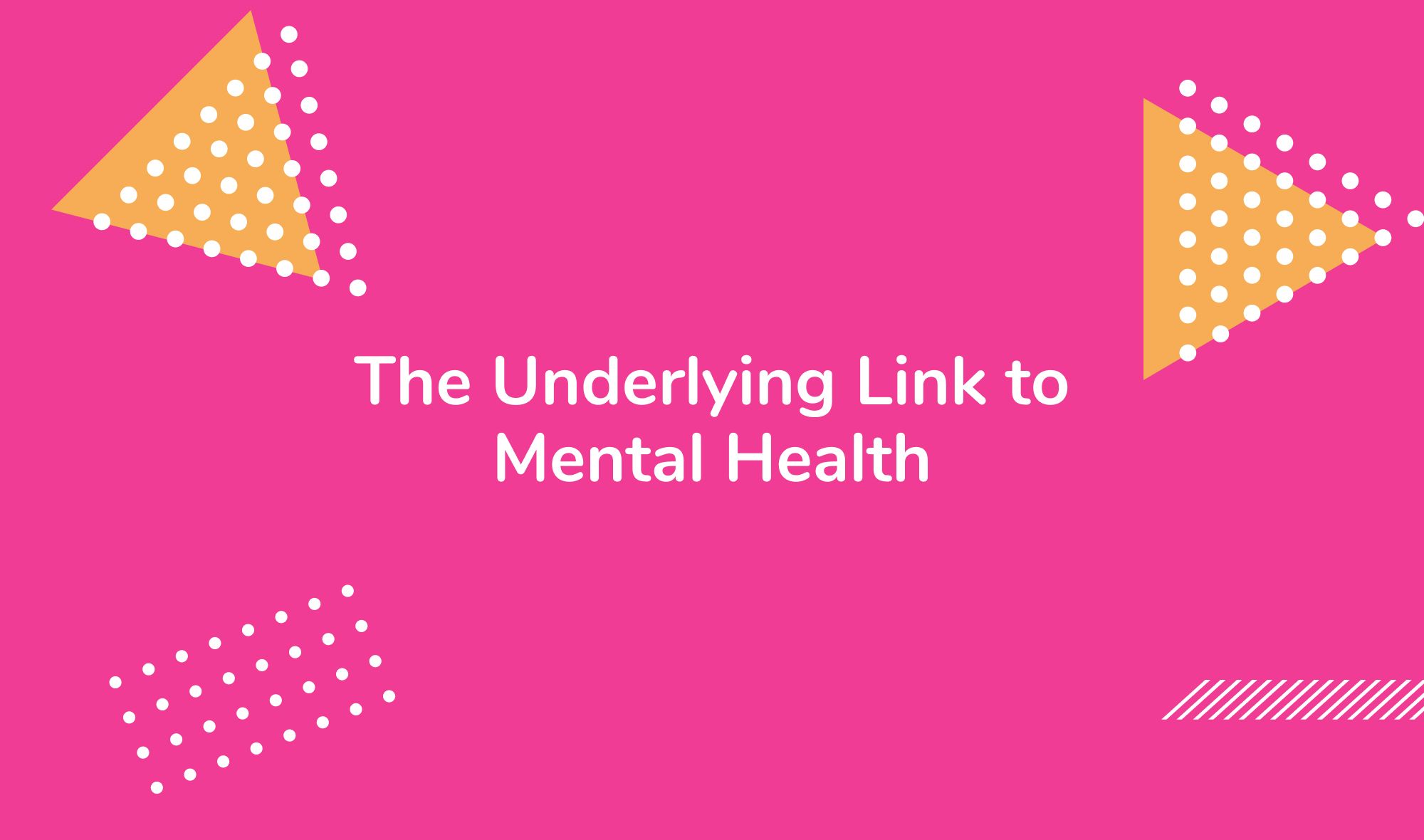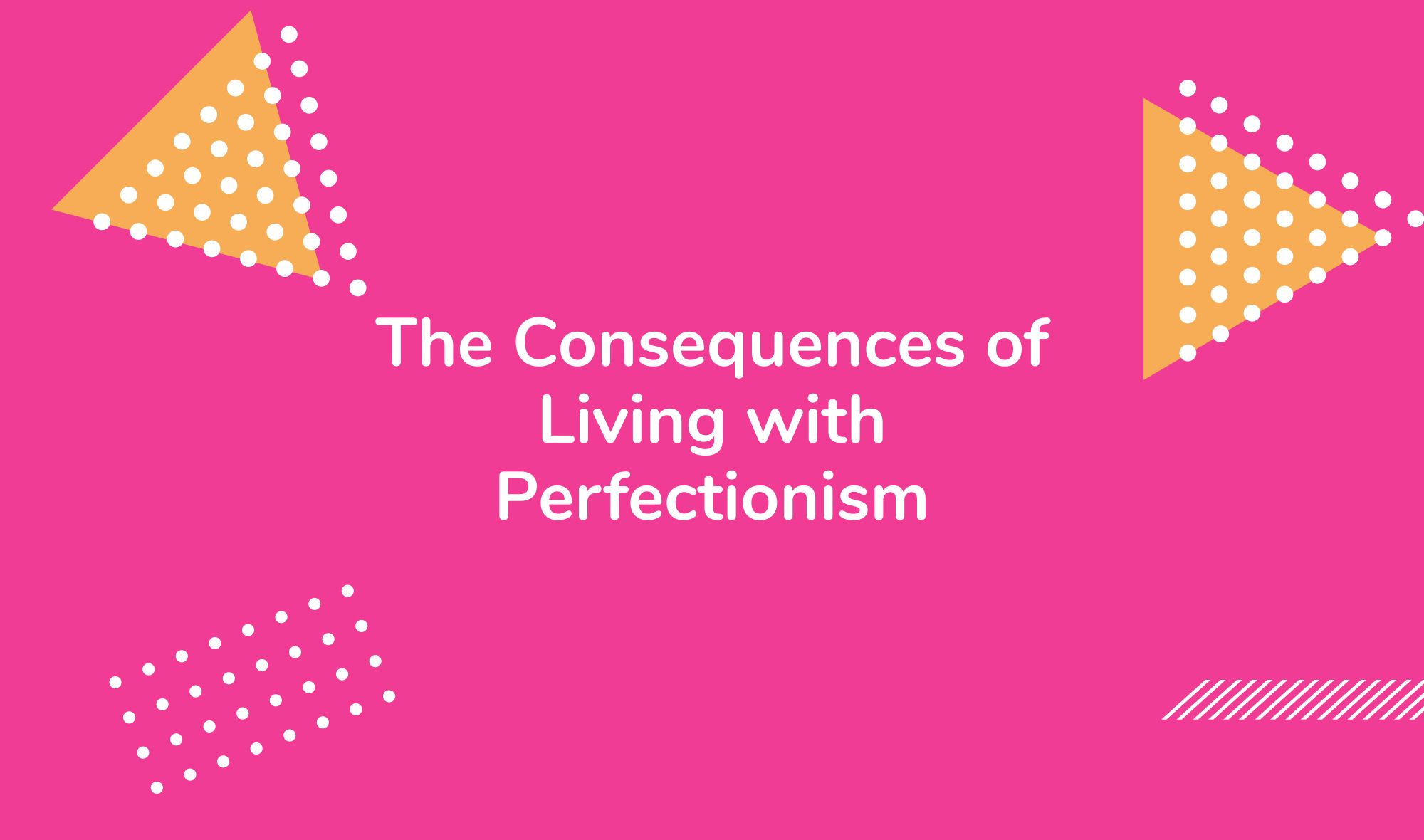Perfectionist Disorder: The Invisible Chains on Your Mental Health
By Julian Lewis • July 4, 2023
Key Takeaways
- Perfectionism is a personality trait that can become a mental health issue if it leads to distress or impairment in functioning.
- Perfectionism is linked to various mental health conditions like Obsessive Compulsive Disorder (OCD) and Eating Disorders.
- Self-oriented perfectionism can have a significant impact on individuals' mental health.
- Living with perfectionism can impact daily life, relationships, and overall mental health.
- Strategies for coping with perfectionism include cognitive-behavioral techniques, self-compassion, and seeking professional help.

Perfectionism. A term you've likely heard before, maybe even identify with. But, what happens when the relentless pursuit of perfection goes beyond the healthy ambition of striving for success and spirals into an unyielding, all-consuming desire for flawlessness? In this post, we'll explore the dark side of perfectionism and its intricate relationship with mental health, bringing attention to how this personality trait can translate into maladaptive perfectionism, causing a myriad of mental health issues, and even leading to severe mental health disorders.
Aiming for high standards and striving to achieve them isn't inherently problematic. In fact, these attributes often distinguish high achievers and successful individuals. However, when a person becomes so fixated on avoiding mistakes and failure that it cultivates anxious thoughts, triggers feelings of low self-esteem, and fuels unrealistic expectations - that's when the line between perfectionism as a beneficial trait and a detrimental psychological disorder begins to blur.
Whether you've ever found yourself caught in the vicious cycle of overly critical self-evaluations, or you're a family member, co-worker, or friend of someone who's overly self-critical, this comprehensive guide will provide invaluable insights. It will help you identify the nuanced differences between self-oriented, other-oriented, and socially prescribed perfectionism. Unpacking each concept, we'll delve deep into the research, studies, and thought processes around perfectionism to help you make sense of this complex psychological landscape.
Perfectionism can manifest in many life situations and, if left unchecked, it can lead to conditions like obsessive-compulsive disorder (OCD), eating disorders such as anorexia nervosa, or even contribute to feelings of depression and anxiety. Recognizing perfectionist tendencies and understanding their potential negative outcomes is not just a demonstration of self-awareness, but a crucial step towards nurturing mental well-being.
As we navigate this journey of understanding and overcoming perfectionism, we'll learn from experts at leading institutions such as York University and British Columbia, and tap into real-life experiences of young people, adults, and college students. Through the course of this deep dive, we'll explore the significance of high standards, how they relate to our self-worth, and their potential impact on our lives. The ultimate goal? To equip you with the knowledge and tools to identify, manage, and overcome perfectionism.
Ready to let go of the unrelenting quest for perfection? Let's explore how. Welcome to the journey of embracing imperfections.
Join our Newsletter
Transform your career with our personal growth insights. Get one valuable tip right in your inbox every Saturday morning.
The Definition and Psychology of Perfectionism
Perfectionism is a multifaceted personality trait characterized by a person's incessant striving for flawlessness, setting excessively high personal standards, and overly critical self-evaluations. But the question often arises - is perfectionism a disorder?
Perfectionism, in itself, is not classified as a mental health disorder. It is rather viewed as a personality trait that can be adaptive or maladaptive. Adaptive perfectionism, often linked with high achievers, involves setting and working towards high but realistic standards, and accepting that mistakes and setbacks are a part of the process.
On the contrary, maladaptive perfectionism, which can contribute to mental health issues, is characterized by setting unrealistically high standards, an extreme fear of making mistakes, and harsh self-criticism when expectations are not met.
Perfectionism becomes a mental health concern when it turns into a chronic, rigid, self-deprecating mindset that fuels anxiety, depression, eating disorders, and even obsessive-compulsive disorder (OCD). This form of perfectionism isn't about striving for success, but rather a desperate attempt to avoid failure and negative judgement.
Understanding this difference is vital because maladaptive perfectionists don't simply strive for success, but they base their self-worth on their ability to achieve perfection. This unattainable quest often leads to negative emotions, psychological distress, and can severely impact a person's well-being.
In his book, How to Be an Imperfectionist, Stephen Guise refers to perfectionism as "the unreachable end of a road that doesn't exist," highlighting the unhealthy and unrealistic standards perfectionists set for themselves.
To sum up, while perfectionism itself is not a disorder, it becomes a mental health concern when it manifests as maladaptive perfectionism, which, according to various research studies, can serve as a pathway to several mental health disorders. Being aware of the fine line between healthy striving and harmful perfectionist tendencies is a crucial step towards safeguarding your mental health.
Perfectionism: The Underlying Link to Various Mental Health Conditions

While perfectionism may initially appear as a benign personality trait focused on achieving high standards and success, its darker facets often act as a breeding ground for several mental health conditions, including Obsessive Compulsive Disorder (OCD) and Eating Disorders.
Perfectionism and Obsessive Compulsive Disorder (OCD)
OCD is a mental health disorder characterized by recurring, unwanted thoughts (obsessions) and behaviors (compulsions) that individuals feel compelled to perform. Unsurprisingly, perfectionism and OCD often go hand in hand.
Perfectionists with OCD have a heightened sensitivity to mistakes and a strong desire to control their environment, leading to anxious thoughts and compulsive behaviors. Their fear of failure and making mistakes, coupled with high standards and expectations, can amplify their obsessive-compulsive symptoms.
In his book, When Perfect Isn't Good Enough, Dr. Martin Antony provides insightful strategies to manage perfectionism, a trait he identifies as often coinciding with OCD.
Perfectionism and Eating Disorders
Eating disorders such as anorexia nervosa, bulimia, and binge-eating disorder often have a common underlying thread - perfectionism. Perfectionists, with their high personal standards and self-critical evaluations, are more prone to body dissatisfaction and unhealthy behaviors related to food and weight control.
A perfectionist struggling with an eating disorder may fixate on achieving a 'perfect' body, controlling their food intake excessively to meet this unrealistic standard. These dangerous practices, rooted in perfectionistic tendencies, can severely jeopardize their physical and mental health.
In The Perfectionist's Guide to Losing Control, author Helene Segura provides strategies to break free from the debilitating grips of perfectionism, a pertinent read for those grappling with these conditions.
From this, it becomes clear that the links between perfectionism, OCD, and eating disorders are profound and complex, highlighting the importance of recognizing and addressing maladaptive perfectionism as a significant aspect of mental health care.
Unpacking the Different Types of Perfectionism

Perfectionism is not a monolithic entity, but a multifaceted construct with varying types and dimensions. One key type that we'll delve into is Self-oriented Perfectionism.
Self-oriented Perfectionism
Self-oriented perfectionism is a form of perfectionism where individuals impose excessively high personal standards and unrealistic expectations upon themselves. It's characterized by an incessant desire for flawlessness, accompanied by overly critical self-evaluations.
These perfectionists are driven by an intense fear of failure and making mistakes. They equate their self-worth with their ability to achieve unattainable perfection, often leading to feelings of inadequacy, low self-esteem, and psychological distress.
From the outside, self-oriented perfectionists may seem like high achievers. Yet, their internal reality is riddled with constant anxiety, negative emotions, and self-criticism, resulting in a significant negative impact on their mental health.
In The Gifts of Imperfection, author Brené Brown provides strategies for letting go of who we think we're supposed to be and embracing who we are, a transformative read for self-oriented perfectionists.
Recognizing and understanding the nature of self-oriented perfectionism can help individuals make more compassionate choices towards themselves, overcoming perfectionism, and improving their mental health. It's not about completely eradicating the desire for excellence, but about adopting a more balanced perspective of self-improvement, where failure and mistakes are seen as opportunities for growth rather than evidence of inadequacy.
Stay tuned for the next section, where we'll discuss another crucial type of perfectionism - socially prescribed perfectionism.
For personal growth and development, read Zella's post on Erikson's stages of psychosocial development explained.
Join our Newsletter
Transform your career with our personal growth insights. Get one valuable tip right in your inbox every Saturday morning.
The Consequences of Living with Perfectionism

Living with perfectionism can have far-reaching effects on various aspects of one's life. It's not just a harmless personality trait that's confined to specific situations. Instead, it pervades one's thought process, relationships, mental health, and overall well-being.
Impact on Daily Life
Perfectionists tend to set excessively high personal standards for almost everything they undertake. This could range from demanding perfection in mundane tasks like household chores to more significant endeavors such as career milestones.
The overwhelming need to avoid failure and meet high standards often results in anxiety, stress, and the inability to take pleasure in achievements. Their lives become a relentless pursuit of an elusive ideal of perfection, which can lead to feelings of exhaustion and burnout.
Moreover, perfectionists' unrealistic expectations and fear of making mistakes can inhibit creativity and stifle innovation. They may procrastinate or avoid tasks altogether, fearing that they will not be able to perform perfectly.
Impact on Mental Health
Perfectionism is strongly linked to numerous mental health issues. The constant strain to meet high expectations can result in chronic stress, leading to anxiety, depression, and even suicidal thoughts.
Living with perfectionism also means dealing with a persistent fear of failure, which can trigger anxious thoughts and feelings. This can further lead to mental health disorders like Obsessive Compulsive Disorder (OCD) or eating disorders such as anorexia nervosa.
In his book How to Be an Imperfectionist, Stephen Guise delves into the harmful impacts of perfectionism on mental health and provides practical solutions to embrace imperfection.
Impact on Relationships
Perfectionism doesn't only affect the person who experiences it but also their relationships. Whether it's family members, co-workers, or friends, the high standards and unrealistic expectations can strain relationships, leading to isolation and feelings of loneliness.
Perfectionists often expect others to live up to their high standards, leading to dissatisfaction and conflict. This 'other-oriented perfectionism' can make it difficult for them to form meaningful connections, causing relationship problems.
In conclusion, living with perfectionism is a constant struggle that extends well beyond the realm of high achievers or the classroom. It's a pervasive issue that affects many aspects of life, from daily activities to mental health and relationships. Addressing perfectionism is critical for enhancing well-being, promoting mental health, and fostering healthier relationships.
Breaking the Invisible Chains: Strategies for Coping with Perfectionism
Dealing with perfectionism is no easy task. It's an ongoing journey that requires understanding, self-compassion, and effective strategies. As daunting as it might seem, it's absolutely possible to manage perfectionist tendencies and live a fulfilling life.
Acknowledging Perfectionism
The first step to coping with any mental health issue, including the perfectionist mental illness, is acknowledging its existence. Acceptance isn't about resignation; it's about understanding that perfectionism is a part of your life and it's okay to seek help.
Remember, perfectionism isn't a sign of weakness, but a mental health condition that many people grapple with. Don't shy away from discussing your feelings with trusted friends, family members, or a mental health professional.
Embracing Self-Compassion
Self-compassion is the antidote to the overly critical self evaluations that often accompany perfectionism. It's about acknowledging your feelings, accepting your imperfections, and being kind to yourself.
Embracing self-compassion might seem like a monumental task for a perfectionist. However, books like The Gifts of Imperfection by Brené Brown can provide valuable insights and guidance.
Setting Realistic Expectations
Setting excessively high personal standards and having unrealistic expectations are characteristic of perfectionists. This tendency can be counterproductive and lead to anxiety, stress, and dissatisfaction.
To overcome this, set attainable goals and celebrate small wins. Remind yourself that it's okay not to be perfect, and mistakes are part of the learning process. This change in mindset can alleviate the negative emotions associated with unmet perfectionist standards.
Seeking Professional Help
Perfectionism, particularly when it causes significant distress or hampers your day-to-day functioning, may require professional help. Mental health professionals can provide a safe space to express your thoughts and feelings, offer strategies to manage perfectionist tendencies, and guide you towards a healthier outlook.
If you're feeling overwhelmed, don't hesitate to seek help. Here at Zella Life, we offer both business coaching and personal coaching tailored to help you navigate through perfectionism.
In conclusion, coping with perfectionism isn't about eliminating it but learning to manage it. By acknowledging your perfectionism, embracing self-compassion, setting realistic expectations, and seeking professional help, you can break the invisible chains of perfectionism and live a more balanced, fulfilling life.
Resources for Dealing with Perfectionism
Managing perfectionism and its associated mental health issues requires patience, practice, and most importantly, resources that provide understanding and guidance. To help you on this journey, here are some recommended resources:
Books:
- "How to Be an Imperfectionist: The New Way to Self-Acceptance, Fearless Living, and Freedom from Perfectionism" by Stephen Guise: This book challenges the notion of perfectionism and offers a fresh perspective on how to accept our imperfections and live without the constant pressure of being perfect.
- "When Perfect Isn't Good Enough: Strategies for Coping with Perfectionism" by Martin M. Antony and Richard P. Swinson: The authors provide actionable strategies to overcome perfectionism and the anxiety that often comes with it.
- "The Perfectionist's Guide to Losing Control: Letting Go to Find Peace" by Bryan Robb: This book guides readers through the process of letting go of control and embracing peace amidst the pursuit of perfection.
Podcasts:
- The OCD and Anxiety Podcast: This podcast offers insights and advice on managing OCD and anxiety, both of which are closely related to perfectionism.
- Being Well Podcast with Dr. Rick Hanson: Dr. Hanson, a psychologist, and his son Forrest explore how we can manage our brains to lead a more fulfilling and happier life.
- The Heart University Podcast - Time Freedom with Justine Lackey: In this episode, Justine Lackey shares how to manage time effectively and overcome the perfectionist tendency to overwork.
Remember, perfectionism doesn't define you. With the right resources, self-awareness, and help, it's possible to manage the perfectionist tendencies and live a fulfilling life. If you'd like to explore more about perfectionism and its impacts on life and mental health, don't hesitate
Conclusion
Perfectionism, while often glorified, can lead to a range of mental health conditions. It's crucial to understand how it can impact our lives - professionally and personally - and to seek help when needed. Whether perfectionism is manifesting as a disorder such as OCD or an eating disorder, or simply creating stress and self-doubt, it should not be ignored.
Read more about: Imposter Syndrome, Well-being, Life Coaching
About Julian Lewis
Julian Lewis is a driven and accomplished professional with a passion for driving positive change in the business world. He is the co-founder and COO at Zella Life.
His own experience as a professional of color in a Fortune 500 company led him to discover the limitations for advancement that many professionals like himself face. Determined to reach his full potential, Julian became an established business coach and entrepreneur, committed to supporting others in their pursuit of personal and professional growth.
Today, Julian is a recognized corporate trainer, coach, and leader, known for his ability to leverage real-life experiences and evidence-based methodologies to affect positive change within individuals and organizations. As the leader of Zella Life's coaching division, he is dedicated to empowering individuals and businesses to achieve their full potential.